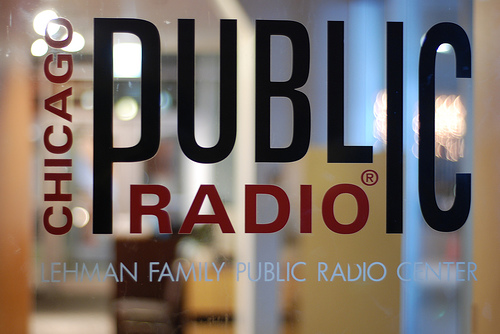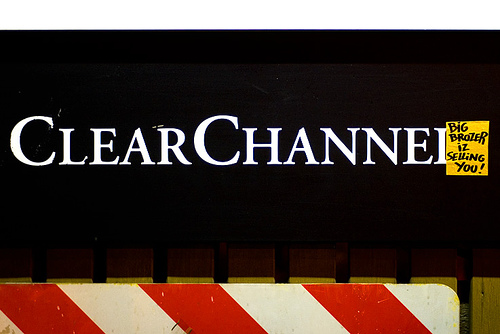July 15, not May 15, could be the “end of Internet radio.” And the royalties body, SoundExchange, wants you to believe that opponents of an Internet radio rate hike just want to protect big corporations. I’m not buying — and public radio stations threatened by the new rules aren’t, either.

The Copyright Royalty Board has delayed to July 15 the deadline by which Internet radio webcasters will pay a new royalty rate and back royalties. To the webcasters and opponents of the rate hike, the delay is a “stay of execution” (as described in a recent Live365 press advisory), one that buys time for Congressional legislation to block the new rules. To SoundExchange, the body that collects the royalties, the rules are a “final determination” on the rules, and according to a press release by the group, the extra time can be used to start collecting royalties, “providing greater business flexibility for all concerned parties.”
So there you have it:
Hurrah, the rules are delayed, and we have time to defeat them with the help of Congress. OR
Hurrah, the rules are final, and we have extra time to start collecting money from you, aren’t you as happy about that as we are?
More: New Net radio fee collections delayed [Cnet News.com]
Both sides are mobilizing. As the decision report was issued finalizing and clarifying the rules, advocacy group SaveNetRadio marched on Washington. They’re hoping to rally support for the Internet Radio Equality Act, as introduced by Congressmen Jay Inslee (D-WA) and Don Manzullo (R-IL). Whatever side you’re on, it’s hard to ignore just how weird the rules themselves are: the Congressional bill would level the playing field by reclassifying “sound recordings” as “musical works,” rather than having separate classifications. Welcome to the legal world of music royalties.
A “Smokescreen”, Says SoundExchange — But Whose?
SoundExchange, for their part, is trying to cast themselves as sticking up for the little guy, against the Big, Bad Corporation. Late last month, it claimed it was working with webcasters to find a mutually-agreeable rate — much to the chagrin of many webcasters, who pointed out SoundExchange waited until after a legally-binding rate change was already in effect to make the announcement, and in fact had no intention of finding anything mutually agreeable — only avoiding Congressional intervention. In response to the Congressional bill that attempts to intervene, SoundExchange immediately claimed the legislation would strip $50 million in artist payments, all to benefit “mega-corporate webcasters.” SoundExchange’s Executive Director John Simson singled out “mega-multiplex services like AOL, Yahoo!, Microsoft and Clear Channel.” SoundExchange even claims advocacy opposing the rates by SaveNetRadio is just a front for these same mega-corporations. It doesn’t seem to answer how these forward-looking funds would survive when stations claim they wouldn’t be able to continue operating, including those that can’t change their business model (like public radio).

Winning support in the public eye may prove difficult for SoundExchange, however. According to their own FAQ, the body was part of the infamous RIAA until September 2003. Claiming their opponents are a front for big webcasters may be tough if they represent big labels. Their board is still dominated by record industry insiders. That doesn’t mean this is exactly a battle of good versus evil, but it’s certainly a battle over money between labels and broadcasters. (Not surprisingly, the National Association of Broadcasters is opposed to the rate hike.)
The real problem I have is that no matter how much SoundExchange wants to claim the opposition is backed by large corporations — and even the extent to which that’s true — they still don’t have an answer to what happens to the webcasters who aren’t “mega-multiplex services.” National Public Radio, independent streamers, services like Pandora.com, independent artists, and many others all have impassioned arguments backed by solid numbers that show they’ll simply shut down if the rate hike goes into effect. NPR points to its hundreds of member stations, none of which can be supported by the “advertising, merchandising, and subscription fees” which SoundExchange claims will offset the higher rates. SoundExchange’s only response is a statistical analysis undertaken by their own Chief Operating Officer. There’s no input from the independent webcasters and artists they claim to be protecting. And much of the analysis simply determines that webcasting is growing, flourishing, and profitable under the old rates, which hardly disproves the scenario going forward.
Nor does SoundExchange explain why webcasters should pay a higher statutory rate (the sound recording rate being discussed) than satellite, while terrestrial radio pays no statutory rate.
In fact, in focusing on a few for-pay services, SoundExchange is essentially saying a big, loud, “*&$#*&$ you” to public radio in the US. While claiming they’re just out to make sure big, evil corporations pay their fair share, SoundExchange makes a great argument for why those same corporations will do fine even as small stations and public stations suffer. Simply put, it’s the small stations who lack the “engine of profit” that SoundExchange is claiming to target. (And there’s also no mention that all involved are also paying a performance royalty that also goes to artists. Oh, except that royalty doesn’t benefit labels.)
Two Months Left; Lobbying Battle to Heat Up
Clearly, artist royalties are a good thing. And exposure for independent music is also a good thing. And sharing revenues for successful commercial services is a good thing. And not putting streams out of business is a good thing. The solution that seems to add up to the best result for actual artists is still in my mind Congressional reform to change the rules and level the playing field across media. We need rules that don’t punish digital media while terrestrial radio gets a free pass, and that charges rates proportional to actual income rather than a crippling fee only those “mega-multiplex corporate” stations could survive.
As for SoundExchange’s attempt to win over us musicians and music lovers, if anyone can make an argument for why these smaller webcasters won’t be hurt by the new rules, I’d love to hear it.
Previously:
May 15 Could be End of Internet Radio; US Legislation to Intervene
If Streaming Rates Stand, “We’ll Have to Shutter”, Says Pandora Founder [CDM interview]
Pandora’s Founder on Decoding Taste and Promoting Indie Music [CDM interview]